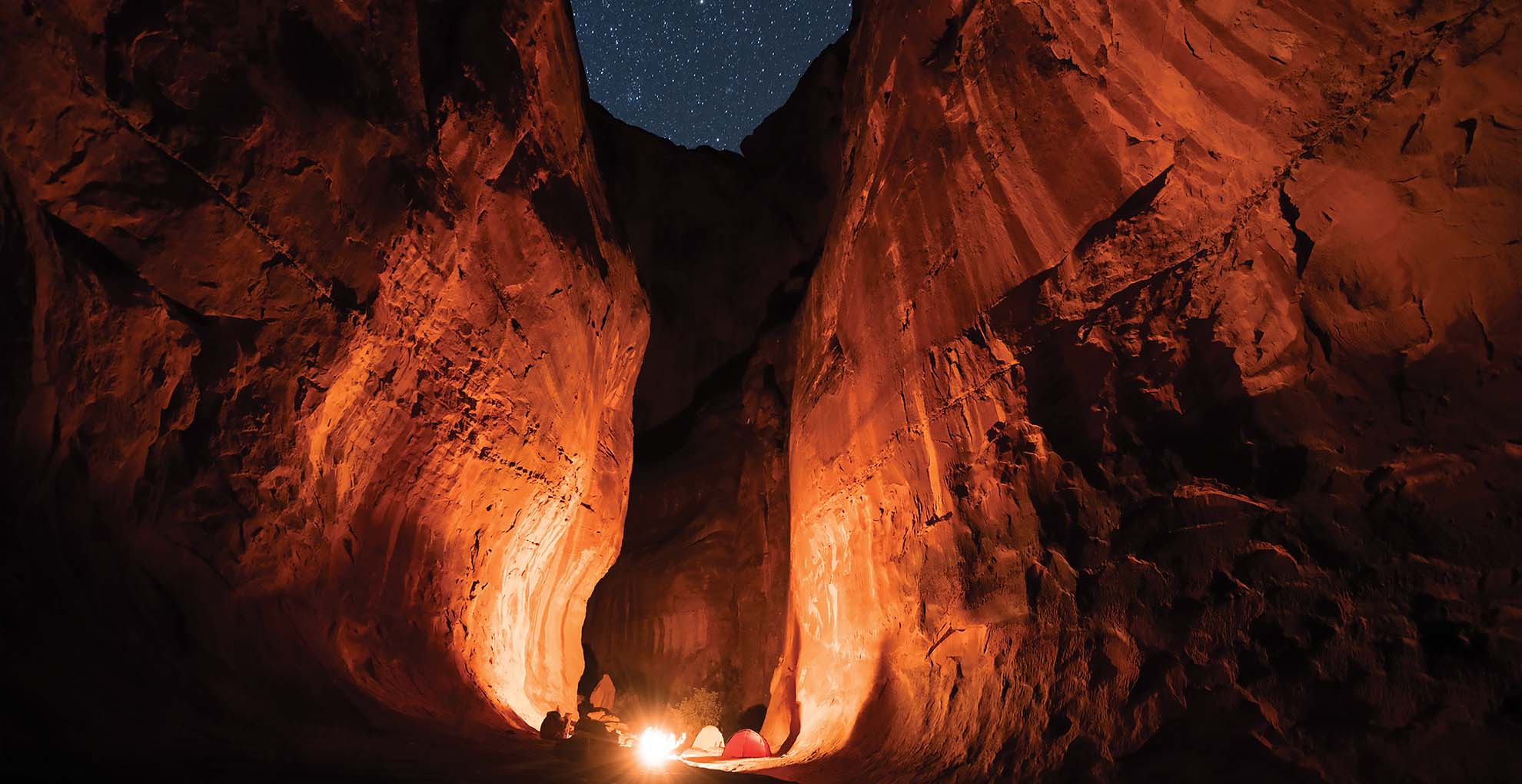Going Deep with Alum and Director of Photography Rick Smith ’02
Rick Smith ’02 explores and shares the planet’s stories.
By Tara Roberts
Photography by Rick Smith

Whether staked out on a well-worn bear trail on a wild island off the coast of Alaska or standing in the corner of a room filled with community leaders in Ghana, Rick Smith’s job is to watch and wait.
As a director of photography for documentaries, Smith doesn’t make the action happen. But with patience and diligence, he’s there to capture the moment it does.
YOUR WHOLE PURPOSE IS TO CAPTURE A MOMENT WHEN THEY DO SOMETHING THAT THEY USUALLY DON’T DO.
“When you make compelling images, it’s a very satisfying process. Even outside of the finished film, you are able to create something that has either an aesthetic beauty to it, or you’re trying to capture moments of humanity,” Smith says. “Documentary work, when done right, there’s an intimacy.”
Smith graduated from Whitman College in 2002 with a degree in biology. He didn’t realize his education was setting him up for his award-winning career, but he had a sense he could try anything.
“At Whitman, you start to get excited about the world,” he says. “Whitman instilled in me a type of intellectual curiosity and confidence that helped me feel like I truly could pick any career path—no matter how improbable it seemed at the time.”
{{1-wide}}
An Unexpected Adventure
As a kid, Smith was fascinated by the type of stories he’d eventually help tell. He loved Mr. Wizard, Bill Nye the Science Guy, Jacques Cousteau’s adventure documentaries—any program about science and nature.
“It just makes the world a bigger place,” he says. “It shows the complexity of the world; it shows that people are passionate about things that you might never have heard about.”
{{2-right}}
At Whitman, he enjoyed learning about science communication and the history of science. He studied abroad in Costa Rica his junior year, and the rigorous tropical ecology program convinced him he needed to make adventure a permanent part of his life.
“You’re cruising around incredible, diverse landscapes, and it just felt sort of magical.”
Smith returned to Costa Rica after graduation to be a teaching assistant in the program and remained convinced he’d continue toward being a biologist. He worked a few research jobs and started applying to graduate schools. In a bold leap, he chose the Master of Fine Arts program in science and natural history filmmaking at Montana State University in Bozeman.
The shift to the humanities was tricky. Science had trained Smith to look at the world in an analytical, often dispassionate way. Filmmaking and film studies required a different level of emotion and personal voice.
DOCUMENTARY WORK, WHEN DONE RIGHT, THERE’S AN INTIMACY.
Smith made it through with time and desire. His innate understanding of technical systems helped him learn the equipment, and his determination landed him freelance jobs where he could practice his skills.
Breaking into the documentary business wasn’t a linear path. “You can work on a great project and then it can be another year before you have another chance to prove yourself or get another paying gig,” he says. “It can be tough. I know a lot of people that are in that same position, and the advice I give them is, the sooner you make it your 100% focus, the quicker it’ll happen. … It’s really about being able to say ‘yes’ as often as possible.”
Smith’s big breaks came through his connections with classmates and from being at the right place at the right time. First, a colleague invited him to work on a National Geographic series. Then, Zero Point Zero—the production company behind shows like “Anthony Bourdain: Parts Unknown”—started filming a series called “MeatEater” based out of Bozeman.
They needed camera people who could run around the mountains packing a ton of gear. Smith was ready.
{{3-wide}}
Sharing The World
As a director of photography, Smith ensures he and his crew capture the imagery that meets a story’s needs, guided by the film or show’s director. He also serves as an interface between the filmmaker’s creative vision and the technical realities of filming.
About a third of Smith’s work is “bluechip” wildlife shots that show animals in nature, with no sign of human interference. Filming those moments takes a small crew and a huge amount of time—maybe fifteen hours a day for weeks to film an event that happens in less than a minute.
{{4-left}}
“So you’re trying to film a grizzly bear predate an elk calf. You know it happens a certain time of year, roughly in a certain area,” he says. “Your whole purpose is to capture a moment when they do something they usually don’t do.”
The rest of Smith’s work is hosted programming, where a person is in front of the camera telling the story, often at a dramatic or remote location.
“You get to see how people from all over the world exist. That’s what makes the travel exciting.”
While Smith feels privileged to have such incredible opportunities, he approaches his work with humility and a deep appreciation for the other people behind the cameras, in front of the cameras and, ultimately, watching the final film.
“I am always inspired by the generosity and kindness of the subjects I work with—they let me into their lives and allow me to do my job of documenting them and the world they live in. You hope that you’re creating content that will help people understand places they would otherwise never think of, never go,” he says. “You’re trying to give depth to the world.”

